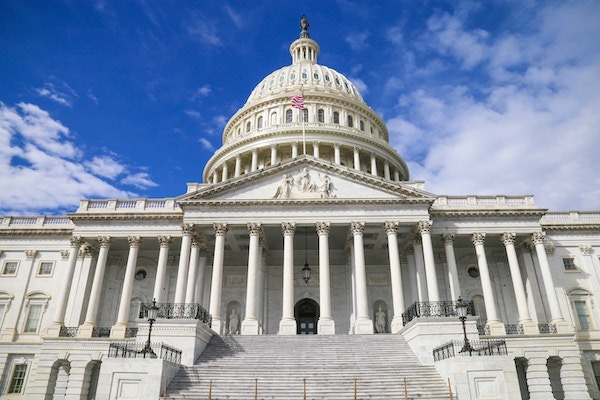The father of America’s nuclear navy, Admiral Hyman G. Rickover, once characterized how new ideas are often resisted by telling a story of how the ancient Locrians once allowed anyone to speak their mind or propose any law they so desired, with the precondition that they did it wearing a noose around their neck. If the speaker’s ideas were accepted, they would be passed into law; if rejected, they would be hanged for disturbing the peace.
While today’s Western world will never hang people for the crime of being unpopular, conformity, tradition, and familiarity sit as judge, jury, and executioner for many new ideas that need to be tried in the great experiment we call the United States of America. One great idea that has been offered and quashed many times over is the proposal to have an Article V Convention of States to amend our U.S. Constitution. Nevertheless, as America continues to face new challenges and grow in the 21st century, the ability for the people to amend our nation’s governing document will be essential to remaining relevant in the future.
What is an Article V convention of states?
While most people are familiar with Congress’ authority to write laws and propose amendments to the Constitution, the founders did not want to leave the States and people powerless and without any way of checking the Federal government. As a result, Article V of our Constitution provides for states to initiate a constitutional convention when two-thirds of the state legislatures (34 states) shall call for a convention for proposing amendments.
To date, 15 legislatures have passed qualified applications out of the 34 needed to proceed to a convention. If it should ever occur that the minimum number of applications are enacted by the states and transmitted to Congress, a convention will begin with each state electing delegates to represent them.
At a constitutional convention, delegates would have the opportunity to introduce, debate, and vote on amendments to the Constitution. Proposed amendments that successfully clear the convention would then need to be ratified by three-fourths of the states (38 states) in order to be enacted as a new law of the land.
But why amend the Constitution?
Many people have a “if it’s not broken, don’t fix it” view of the Constitution, and others still believe that Congress alone should have the power to amend the laws of the land. Fears that opening up the Constitution to a convention of states could result in radical changes that might remove key civil liberties like freedom of expression or the right to vote have frequently been invoked by detractors. However, the fact remains that the founders intentionally left the option for states and the people to amend the Constitution, and this provision should not be allowed to languish without ever being visited in our modern times.
It has been 232 years since the last constitutional convention in the United States. When the Constitution was written, the world was separated by vast oceans that took months to navigate, human and animal labor powered most of civilization, and warfare was waged with muskets and massed armies. Today, humanity has mastered splitting atoms, landing probes on deep space comets, and has the power to completely annihilate civilization through war or climate change.
We live now in a world where the rise of artificial intelligence may present challenges to humans that our present constitution is not capable of addressing. We also stand at the precipice of human expansion to other planets, as technology leaders like Elon Musk look for ways to soon land and establish human colonies on Mars. More concerning of all, even as we witness amazing scientific and technological advances, in the United States, we are also experiencing one of the greatest economic shifts in human history as the gap widens between rich and poor, haves and have nots.
The titanic changes that have occurred since the American Revolution demand a discussion about the Constitution in our 21st century. Congress, which has shown deadlock and repeated impasses in core functions of governance such as passing a budget, has demonstrated itself to be unreliable and handicapped by partisanship when it comes to a strategic vision of America’s future.
It is for these reasons that the people of America and the states must take initiative and boldly address the questions of our times with a constitutional convention. Yes, this nation may be collectively placing its head in a noose to propose changes to our way of life, but to remain fixed and dependent on the formula of centuries past can only result in stagnation and death of our Republic in the future.
I for one believe, as the founders did, that people can and should be trusted to alter or abolish government in order to effect their life, liberty, property, and pursuit of happiness. We cannot depend on Congress alone; as Patrick Henry once said, “Show me that age and country where the rights and liberties were placed on the sole chance of their rulers being good men, without a consequent loss of liberty?”
In 2020, every state legislature that has not yet passed a resolution to call for a convention should do so. We should remember that America began as an experiment, and continued experimentation is the key to great discovery.
Danny de Gracia, Th.D., D.Min., M.A., is an ordained minister, internationally published author, science fiction novelist, and a former committee clerk for the Hawaii State House of Representatives.
The MAHB Blog is a venture of the Millennium Alliance for Humanity and the Biosphere. Questions should be directed to joan@mahbonline.org.
The views and opinions expressed through the MAHB Website are those of the contributing authors and do not necessarily reflect an official position of the MAHB. The MAHB aims to share a range of perspectives and welcomes the discussions that they prompt.
